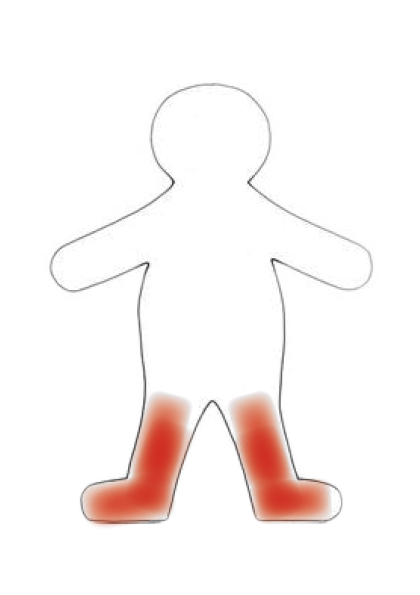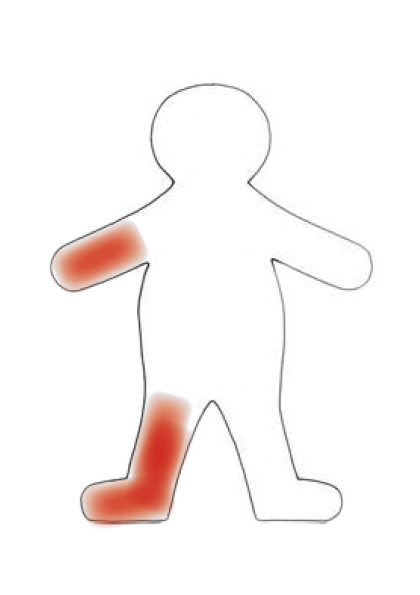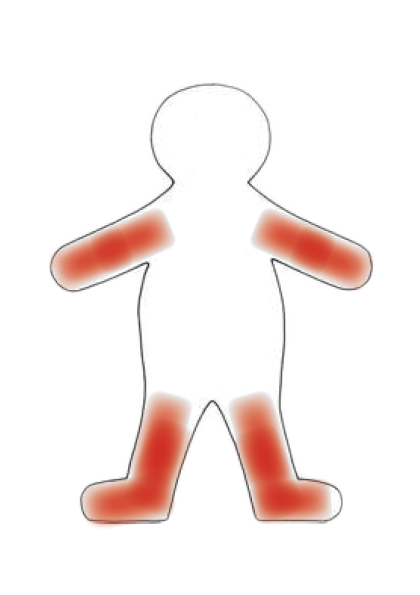Spastic Cerebral Palsy is the most common form of Cerebral Palsy and is seen in around 75% of cases.
The most notable symptoms of Spastic Cerebral Palsy are rigid limbs, the severity varying between people. It is caused by increased muscle tone. Movements tend to be stiff and jerky and as the child grows the symptoms may become more pronounced due to muscles being unable to stretch and becoming shortened. All cases of the condition are different, but people with Spastic Cerebral Palsy are quite likely to also have learning difficulties, though these will vary in severity from case to case. Stiffness of the limbs can be helped by medication which reduces muscle contraction either taken by mouth or injected into the muscles.
The most notable symptoms of Spastic Cerebral Palsy are rigid limbs, the severity varying between people. It is caused by increased muscle tone. Movements tend to be stiff and jerky and as the child grows the symptoms may become more pronounced due to muscles being unable to stretch and becoming shortened. All cases of the condition are different, but people with Spastic Cerebral Palsy are quite likely to also have learning difficulties, though these will vary in severity from case to case. Stiffness of the limbs can be helped by medication which reduces muscle contraction either taken by mouth or injected into the muscles.
Diplegia
Diplegia means that both legs are affected but the arms are either unaffected or only mildly affected
|
Hemiplegia
Hemiplegia means that the arm and leg on only one side of the body are affected. Monoplegia means that only one limb is affected
|
Quadraplegia
Quadraplegia means that all four limbs are affected and usually the whole body.
|




